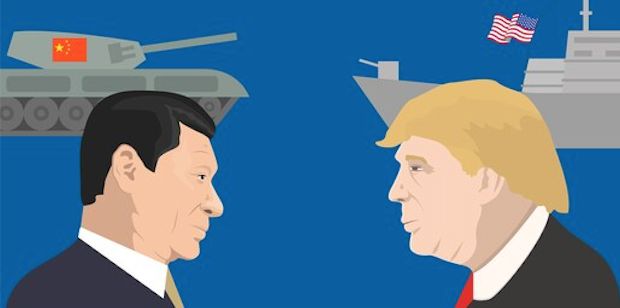A recent op-ed in the PLA Daily, China’s official military newspaper, is calling for the Chinese armed forces to adopt blockchain technology. The article proposed various use cases, including the storage of personnel data such as career accomplishments and basic details. It also called for the creation of a reward system based on the blockchain. Another suggested use-case is the storage of military secrets.
Using the Blockchain to Reward Military Personnel
According to the op-ed, the reward system would be used to reward military personnel using tokens. Tokens would be awarded for things such as tasks completed, specialty skills, and various other accomplishments. This would be a system based on daily achievements, which would help with human resource management.
Using the Blockchain in Information Warfare
In the op-ed, there is a section calling for use of the blockchain in information warfare. It suggests that China could secure its media networks using blockchain technology. As a result, China would have an advantage in this field. While Western media sources would still be vulnerable to information warfare attacks, China’s media network would be impenetrable, thanks to the use of blockchain technology. In short, China would be able to shape opinions in the other nations using propaganda, while they would not be able to do the same to them. The op-ed concludes by saying that this will be an important “battlefield” in the future.
The op-ed also notes that military applications for the blockchain have received a lot of attention in the west. It gives the example of NATO, which is working on using the blockchain for the modernization of its defense platform. Additionally, it notes that DARPA has published a concept paper on creating an information platform powered by the blockchain.
This is Causing Defense Analysts in the West to Get Jittery
A recent article in Global Security Reviews lays out why the potential adoption of blockchain technology by the Chinese military may pose a threat. It provides a number of hypothetical scenarios where China could have a major advantage when using the blockchain. For instance, it states that China could potentially use the blockchain to send funds to agents in the west without being traced. This could be in the form of funding for extremist groups, which could destabilize western societies to the benefit of China. The article concludes by stating that while none of the scenarios it lays out has occurred, they are all possible using existing blockchain technology.
China is Embracing the Blockchain
A few weeks ago, China president called on the nation to adopt blockchain technology as the driving force for innovation. Since then, various government agencies have been working on developing various use cases for the blockchain. Both in the administrative and finance sector, there has been a major increase in proposed blockchain-based projects throughout China. It is also worth noting that China’s central bank plans to launch a digital currency that will in part be powered by the blockchain.
Image Source: Shutterstock
Notice: Information contained herein is not and should not be construed as an offer, solicitation, or recommendation to buy or sell securities. The information has been obtained from sources we believe to be reliable; however no guarantee is made or implied with respect to its accuracy, timeliness, or completeness. Authors may own the crypto currency they discuss. The information and content are subject to change without notice. Visionary Financial and its affiliates do not provide investment, tax, legal or accounting advice. This material has been prepared for informational purposes only and is the opinion of the author, and is not intended to provide, and should not be relied on for, investment, tax, legal, accounting advice. You should consult your own investment, tax, legal and accounting advisors before engaging in any transaction. All content published by Visionary Financial is not an endorsement whatsoever. Visionary Financial was not compensated to submit this article Please also visit our Privacy policy; disclaimer; and terms and conditions page for further information.

